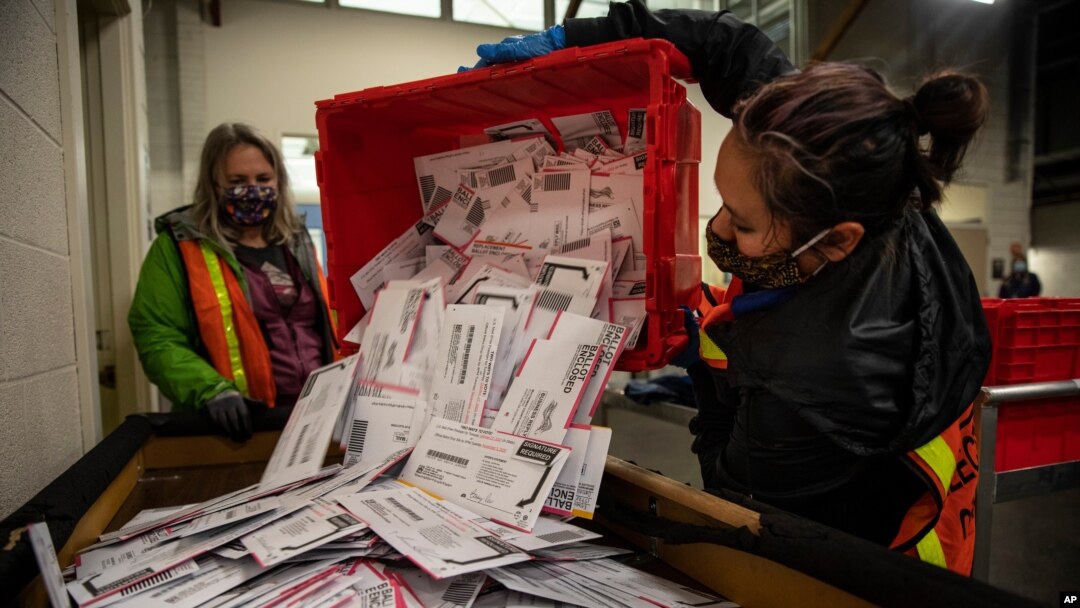Russia’s efforts to discredit and undermine democratic elections appears to be expanding rapidly, according to newly declassified intelligence, spurred on by what the Kremlin sees as its success in disrupting the past two U.S. presidential elections.
The U.S. intelligence findings, shared in a diplomatic cable sent to more than 100 countries and obtained by VOA, are based on a review of Russian information operations between January 2020 and December 2022 that found Moscow “engaged in a concerted effort … to undermine public confidence in at least 11 elections across nine democracies.”
The review also found what the cable describes as “a less pronounced level of Russian messaging and social media activity” that targeted another 17 democracies.
“These figures represent a snapshot of Russian activities,” the cable warned. “Russia likely has sought to undermine confidence in democratic elections in additional cases that have gone undetected.
“Our information indicates that senior Russian government officials, including in the Kremlin, see value in this type of influence operation and perceive it to be effective,” the cable added.
The Russian ambassador to the U.S. on Saturday dismissed the allegations.
“As they say it in the West, it is ‘highly likely’ that this piece is a compilation of outright speculations, gossips and Russophobic outbursts,” Anatoly Antonov was quoted as saying on the embassy’s Telegram channel. “They are rooted in the administration’s insecurities about the correctness and efficiency of methods of resolving problems both at home and at the international arena.”
However, last November, Wagner mercenary group chief Yevgeny Prigozhin, who also was connected to Russia’s Internet Research Agency that was implicated in the so-called Russian troll farms, appeared to admit culpability for interfering in U.S. elections in a social media post. He died in a plane crash in late August, according to Russian authorities.
“Gentlemen, we interfered, we interfere, and we will interfere,” Prigozhin said.
U.S. officials assess, though, that Russia’s perception of success in sowing doubt surrounding the 2016 and 2020 U.S. presidential elections, has spurred new Russian campaigns targeting countries in Asia, Europe, the Middle East and South America.
The goal, they say, is specifically to erode public confidence in election results and to paint the newly elected governments as illegitimate — using internet trolls, social media influencers, proxy websites linked to Russian intelligence and even Russian state-run media channels like RT and Sputnik.
And even though Russia’s resources have been strained due to its invasion of Ukraine, Moscow election interference efforts do not seem to be slowing down.
It is “a fairly low cost, low barrier to entry operation,” said a senior U.S. intelligence official, who spoke on the condition of anonymity in order to discuss the intelligence assessment.
“In many cases they're amplifying existing domestic narratives that kind of question the integrity of elections,” the official said. “This is a very efficient use of resources. All they're doing is magnifying claims that it's unfair or it didn't work or it's chaotic.”
U.S. officials said they have started giving more detailed, confidential briefings to select countries that are being targeted by Russia. Some of the countries, they said, have likewise promised to share intelligence gathered from their own investigations.
Additionally, the cable makes a series of recommendations to counter the threat from the Russian disinformation campaigns, including for countries to expose, sanction and even expel any Russian officials involved in spreading misinformation or disinformation.
The cable also encourages democratic countries to engage in information campaigns to share factual information about their elections and to turn to independent election observers to assess and affirm the integrity of any elections.


